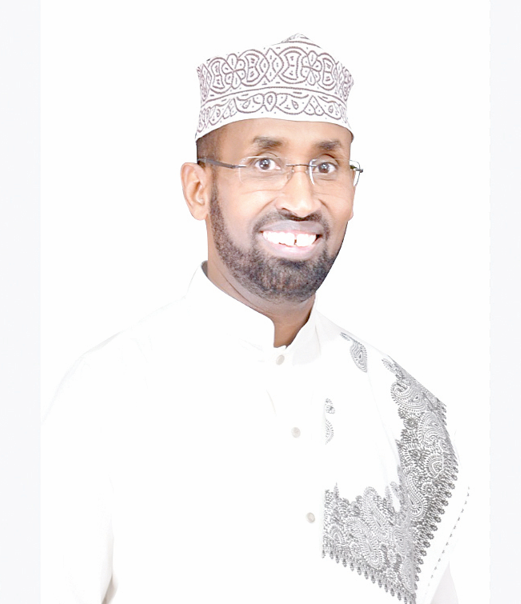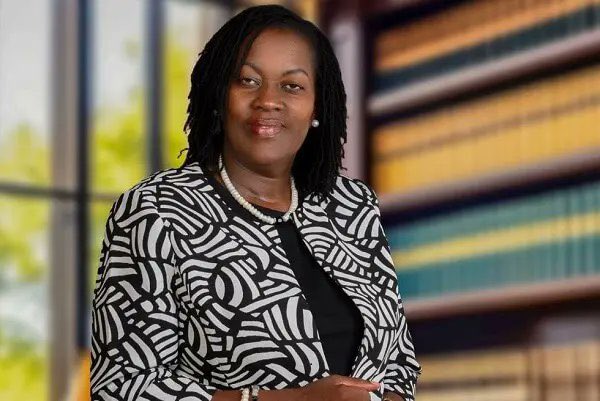Refugee finds rare solace in music career

For many refugee youths at Kakuma, life is tough. Finding a job in a foreign country isn’t easy. As a result, hopelessness and desperation tend to creep in on one’s psyche.
However, two brothers; 23-year-old Salumu Jabiri aka Smart Djaba and 18-year-old Salumu Atibu are determined to change this narrative. Jabiri is a new age pop singer, songwriter, recording/performing artiste who sings songs of hope in three languages— English, French and Kiswahili. He has won numerous music awards organised and sponsored by Lutheran World Federation (LWF) a non-governmental organisation associated with the United Nations High Commission for Refugees (UNHCR). Atibu on the other hand was crowned Mr Kakuma in 2017.
Their life experiences sound more like a scene from a movie. They had a normal childhood until war broke out in Democratic Republic of Congo (DRC) in 2008. The two brothers witnessed a horrific incident.
“We witnessed as our father was killed and my mother was forced to have sex with our elder brother who is now suffering from mental torment. My two sisters too were raped; one by six gunmen and my brother was beaten as he tried to save my father,” Atibu recalls.
Family split into two
The attackers were demanding money and his mother, sister and elder brother managed to escape through the back door. They convinced the criminals they would fetch money from another room.
Jabiri, Atibu and his elder sister found themselves in hospital after the attack. After leaving hospital, they moved to Uvira town, in the South Kivu Province of the DRC where their sister engaged in prostitution to sustain them.
They later learnt that their mother returned home after a few days, but was accused by relatives of having sent the gunmen to kill their dad for his property. This forced her to flee to the streets. The family split into two— (Jabiri, Atibu and one sister) and (their mum, elder brother and a sister).
On the other side, Jabiri, his sister and Atibu continued with their lives in the streets until they met their father’s business mate who promised to assist them. But they never got to meet again: they were attacked a second time.
“We were attacked by men with guns in Congolese army uniforms. We escaped in the forest and stayed for two days without food or water. We went in Changungu, Rwanda where we met some Good Samaritans who brought us to Kakuma in 2011,” says Atibu
Atibu describes his brother as calm and hardworking ever since he was young. Jabiri spent his childhood playing football. They had started school in their home country, but when they arrived in Kakuma, they had to start afresh at Mogadishu Primary School.
“It was not easy for Jabiri and he became depressed by all these happenings. He dropped out of school in 2012 and attended a film making training programme for three years by FilmAid International,” narrates Atibu.
At the camp, there was nothing much to do and everyday, they longed to be reunited with their family. It was here that Jabiri discovered his music talent and he desired to use his gift to inspire hope and also try to track his family. “He knew that if he became a star, our family would see him on TV and they would find us,” says Atibu.
His dream to do this was marked with various challenges. First, Kakuma, as he describes it, is in a world of its own, far away from civilisation and it wasn’t easy for Jabiri to do his music as there were no recording studios.
“I remember the day he recorded his first song Born to Shine in 2012. He had recorded it on a friend’s laptop, but the song went viral not only in the camp, but in all of Turkana county. That’s how people came to know of him,” recalls Atibu
In 2017, Jabiri’s music producer friend — Vekta of Alka Production brought him to Nairobi and sponsored several of his audio and video music. Atibu joined him later on that year.
“I felt like he needed someone close by him because he had a lot going on. I am now working as his official photographer. I am also his official video director and I shot one of his video, titled Lokolo,” Atibu reveals. There are no recording studios and not everyone has access to the Internet in Kakuma. Sixty per cent of Jabiri’s music is done on social media where they reach out to their fans.
The two have created a refugee group for musicians in Kakuma called Afrostars, meant to mentor, guide and empower each other with music and business skills and to create a platform where they can showcase their talent. “We did our first talent search at the camp and now we are mentoring over 50 artistes under Afrostars,” he says.
They also found their mother, sister and elder brother last year through UNHCR’s programme of reuniting refugees separated in war. Their mother now sells mandazi at Kakuma, while their sister operates a fish business.











